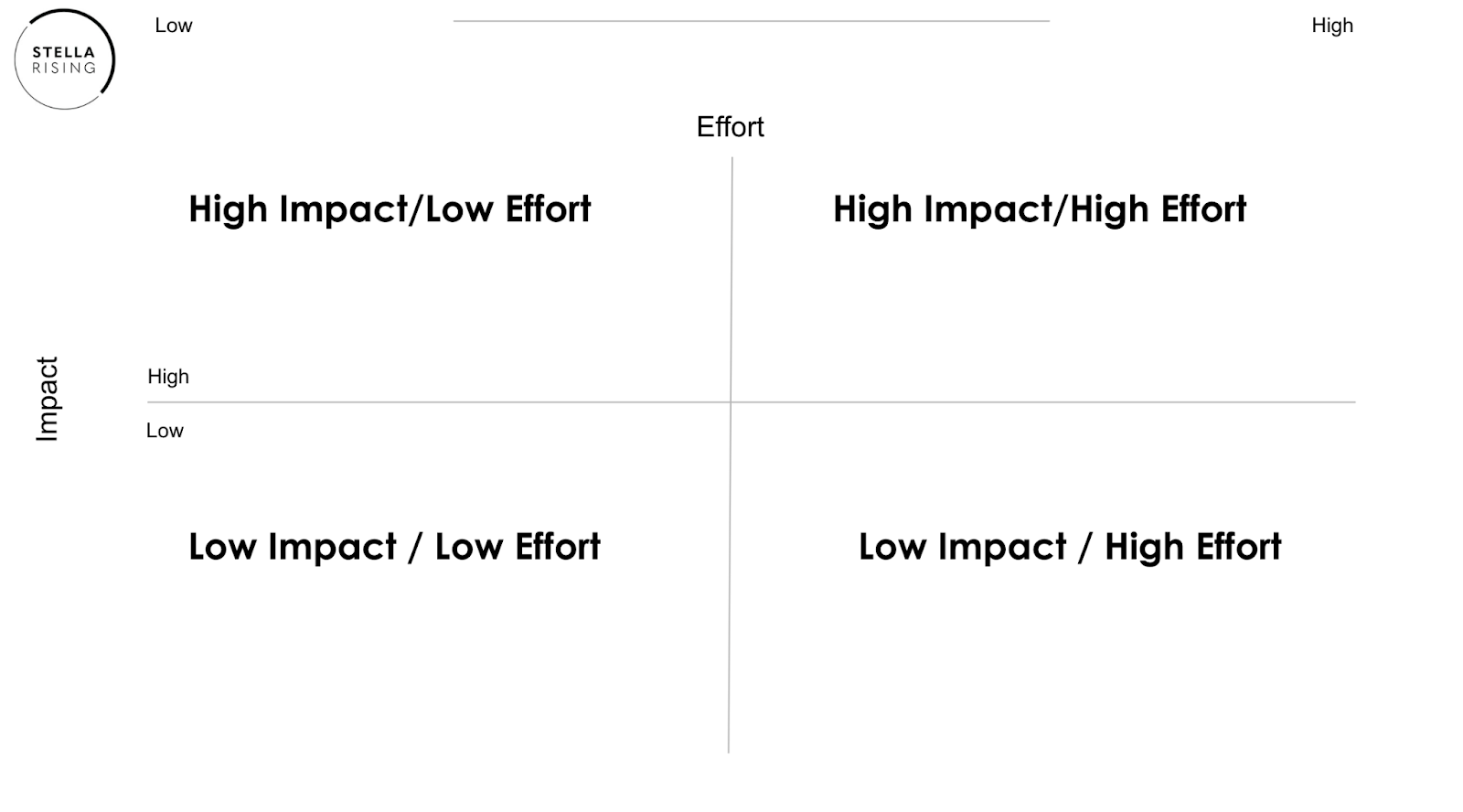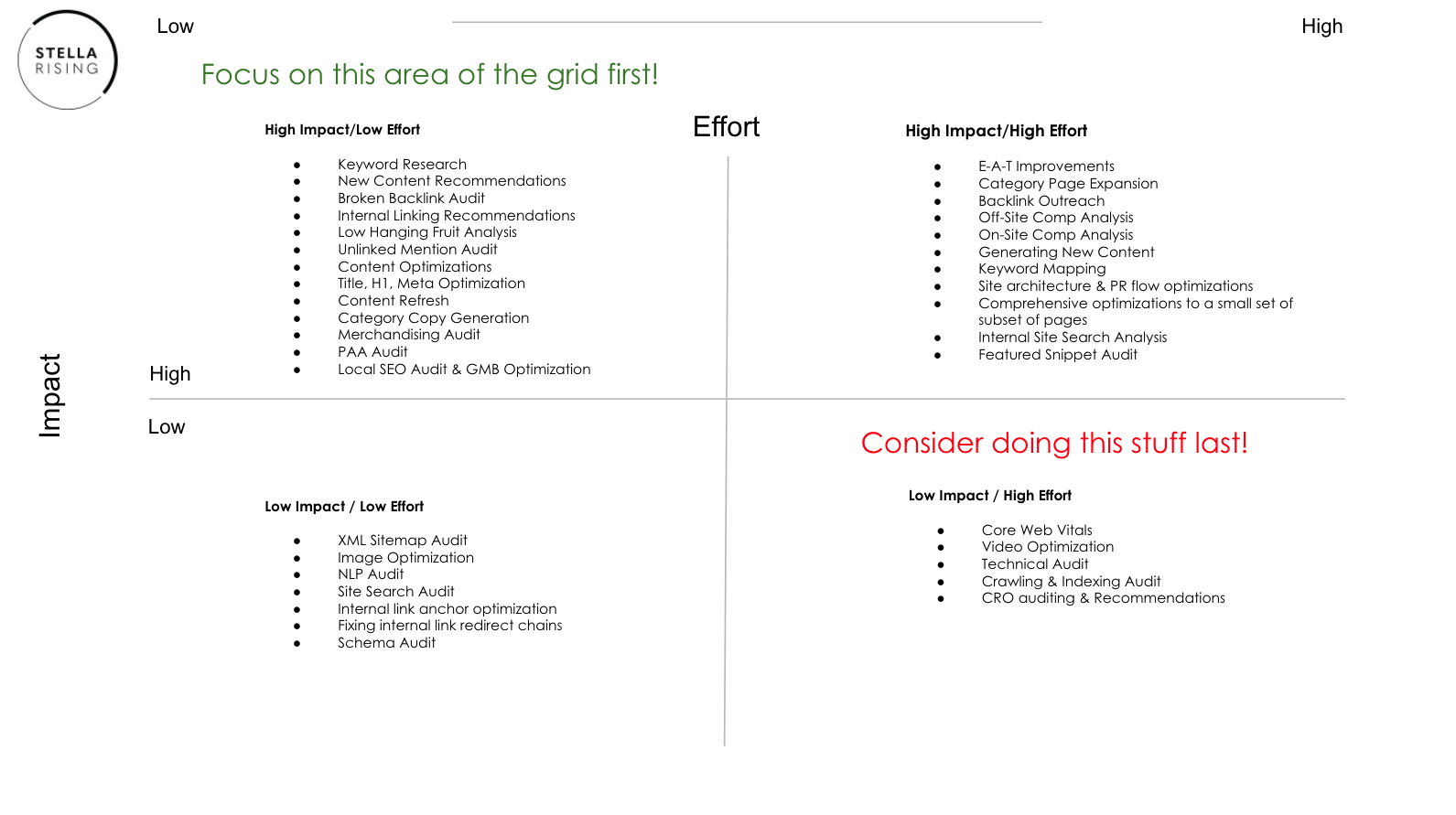
How To Framework: SEO Task Priority For Short Term Wins and Long Term Success
One key dynamic for effective search engine optimization campaigns is prioritizing actions so the easiest high-impact work is done first.
This prioritization allows us to achieve great results early in the process so that subsequent more difficult and important tasks are done within this wave of success.
If you want to jump ahead and start making progress before we begin working together, here's some direction to get you started building a well-oiled content marketing machine.
Ultimately, my role is as the overseer of these stages below, erecting systems to enable the overall process and ensuring we're thorough in moving through them.
My client's role is to help finish these stages and master the last one; master maintenance.
Since this is a large amount of work across existing content libraries, you can begin to run ahead of me, before we start working together, now knowing the strategic SEO process.

5 Stages of SEO Priority
Ultimately, this process runs through these five stages.
Start with the first stage and work your way through each. While it's somewhat linear, you'll likely be doing things across multiple stages simultaneously.
-
Tackle Low Hanging Fruit (High Impact, Low Effort)
-
Simplify Everything
-
Make What’s Left Better
-
Identify & Fill In The Gaps (What's Missing?)
-
Master Maintenance (from our new foundations)
You can read more about these strategic stages here.
1. Low Hanging Fruit: High-Impact & Low-Effort Tasks
The title change rollout is a major part of tackling low-hanging fruit. It's the first project I have tackled with new clients.
This project also gave me good visibility into the content libraries we have to work with so we can more effectively work through our subsequent stages.

In the graphic above, from Stella Rising, here's what they have listed under the high-impact low-effort quadrant.
-
Keyword Research
-
New Content Recommendations
-
Broken Backlink Audit
-
Internal Linking Recommendations
-
Low-Hanging Fruit Analysis
-
Unlinked Mention Audit
-
Content Optimizations
-
Title, H1, Meta Optimization
-
Content Refresh
-
Category Copy Generation
-
Merchandising Audit
-
PAA (People Also Ask) Audit
-
Local SEO Audit & GMB (Google My Business) Optimization
These are the tasks to focus on first. I've bolded the ones I think are most important on the list.
If you're using an SEO audit tool, it will score and direct you to do all types of tasks. If you don't filter these tasks through this matrix, you'll end up spending a large amount of time on projects that garner little results. Often business owners that use these tools get stuck on the idea of making all the errors in the report go away. But it's much more important to use the tool to identify the low-hanging fruit and just do those tasks first. If time and money don't matter, go right ahead and knock them all out.
2&3: Where You Can Get Ahead
Where you can be seeking content opportunities for improvement are 2. Simplify Everything and 3. Make What's Left Better.
Content consolidation of blog posts, guides, and event content is one way to simplify. Adding sections to existing guide pages is a way to make what's left better.
Ideally, we're logging changes (I use Airtable), and then we can track how our changes affect rankings and traffic.
This allows us to make further changes or even revert them if we experience a loss.
4. Identify & Fill In The Gaps (What's Missing?)
Continue producing content.
Use my blog post checklist to ensure all elements are optimized making your content stronger when publishing.
5. Master SEO Maintenance
Ultimately, you'll want a complete process from creation to maintenance to sustain your search engine rankings and prevent the loss that comes from neglecting your content library.
Without this step, you're spending a lot of time and money for a result that could be much stronger with a little more effort.
If you've already been doing these SEO tasks and want an expert to help guide and execute more effectively, shoot me a message, and let's talk about your marketing goals.
Search Engine Optimization (SEO)
- Created on .
- Last updated on .